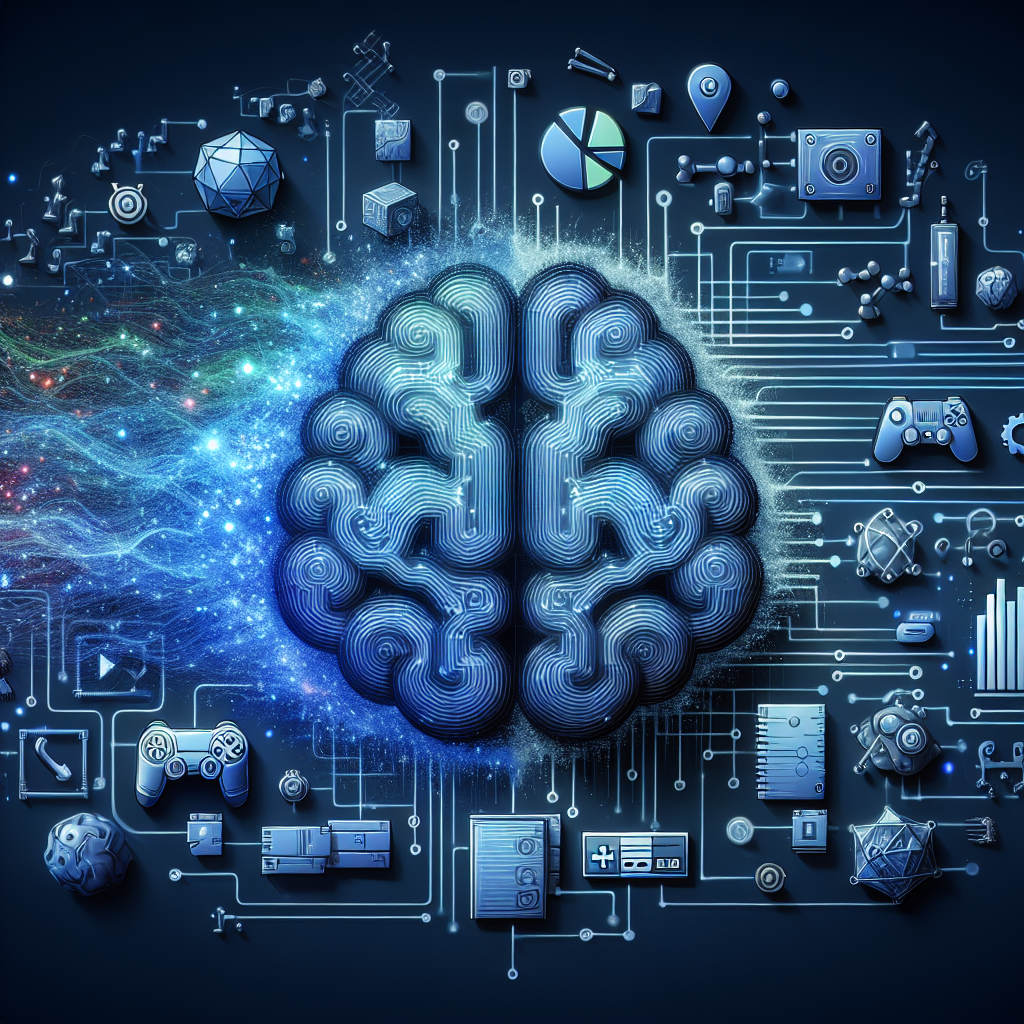The Benefits of AI in Game Marketing Analytics
In the highly competitive world of video games, marketing plays a crucial role in the success of a game. With millions of games available on various platforms, developers need to find ways to stand out and attract players to their games. This is where AI in game marketing analytics comes into play.
Artificial intelligence (AI) has revolutionized the way companies analyze data and make decisions. In the gaming industry, AI has been used to enhance marketing strategies and provide valuable insights into player behavior. By leveraging AI in game marketing analytics, developers can gain a deeper understanding of their audience and optimize their marketing efforts to reach the right players at the right time.
Here are some of the key benefits of using AI in game marketing analytics:
1. Predictive Analytics
One of the main advantages of AI in game marketing analytics is its ability to predict player behavior. By analyzing historical data, AI algorithms can identify patterns and trends that can help developers anticipate what players are likely to do next. This allows developers to tailor their marketing campaigns to target specific player segments and increase engagement.
For example, AI can predict which players are more likely to make in-game purchases and send targeted promotions to encourage them to spend money. By leveraging predictive analytics, developers can maximize the effectiveness of their marketing efforts and drive revenue growth.
2. Personalized Marketing
AI can also be used to personalize marketing messages based on individual player preferences. By analyzing player data such as gameplay patterns, preferences, and demographics, AI algorithms can create personalized marketing campaigns that resonate with each player.
Personalized marketing has been proven to be more effective than generic marketing messages, as it allows developers to deliver relevant content to players at the right time. By using AI in game marketing analytics, developers can create personalized experiences that drive player engagement and loyalty.
3. Real-time Data Analysis
Another benefit of AI in game marketing analytics is its ability to analyze data in real-time. This allows developers to monitor player behavior as it happens and make adjustments to their marketing strategies on the fly. By leveraging real-time data analysis, developers can identify trends and opportunities quickly and respond accordingly.
For example, if a marketing campaign is not performing as expected, developers can use AI to analyze player feedback and make changes to improve its effectiveness. By using real-time data analysis, developers can optimize their marketing strategies and maximize their return on investment.
4. Improved Player Retention
AI in game marketing analytics can also help developers improve player retention rates. By analyzing player behavior and preferences, developers can identify at-risk players and implement strategies to keep them engaged. For example, AI algorithms can identify players who have not logged in for a certain period of time and send personalized messages to encourage them to return to the game.
By using AI to improve player retention rates, developers can increase player lifetime value and drive long-term success for their games. This is especially important in a competitive market where player churn can have a significant impact on a game’s revenue.
5. Enhanced ROI
Overall, the use of AI in game marketing analytics can lead to a higher return on investment (ROI) for developers. By leveraging AI algorithms to optimize marketing campaigns, developers can increase player engagement, drive revenue growth, and improve player retention rates. This can ultimately lead to higher profits and long-term success for game developers.
FAQs
Q: How can AI in game marketing analytics help developers reach new players?
A: AI can analyze player data to identify potential new players who are likely to be interested in a game. By targeting these players with personalized marketing messages, developers can attract new players and grow their player base.
Q: Can AI in game marketing analytics help developers improve player engagement?
A: Yes, AI can analyze player behavior and preferences to create personalized marketing campaigns that resonate with players. By delivering relevant content to players at the right time, developers can increase player engagement and drive loyalty.
Q: Is AI in game marketing analytics expensive to implement?
A: While implementing AI in game marketing analytics can require an initial investment, the long-term benefits can outweigh the costs. By optimizing marketing campaigns and driving revenue growth, AI can ultimately lead to a higher ROI for developers.
Q: How can developers get started with AI in game marketing analytics?
A: Developers can start by collecting and analyzing player data to identify trends and patterns. They can then leverage AI algorithms to create personalized marketing campaigns and optimize their marketing strategies.
In conclusion, AI in game marketing analytics offers a wide range of benefits for developers looking to enhance their marketing strategies and drive player engagement. By leveraging AI algorithms to analyze player data, predict behavior, and personalize marketing messages, developers can optimize their marketing efforts and achieve long-term success in the competitive gaming industry.

